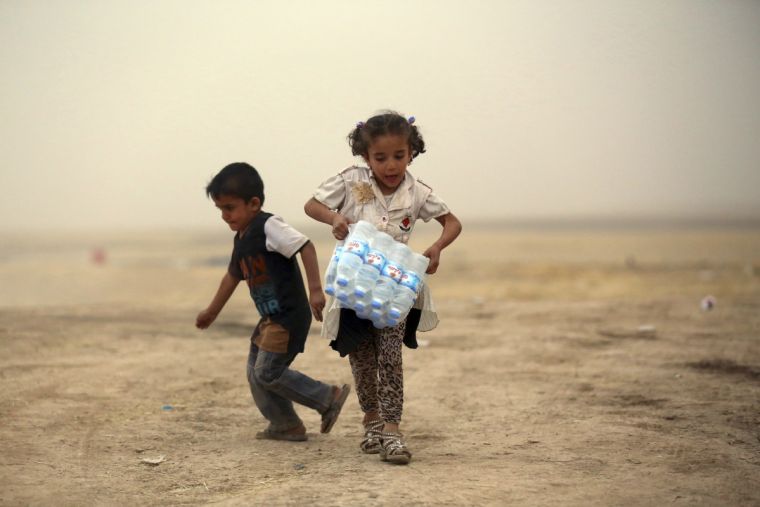ISIS Is Teaching Children How To Behead And Make Suicide Bombs

Children living under ISIS rule in Iraq have been taught how to make bombs and behead people, families fleeing the jihadis have warned, as the offensive to take back Mosul continues.
One father, Hamid, told Save the Children that there was a television in the garden of a local school run by militants "where they were showing propaganda: how to kill and how to make suicide bombs and how to cut heads off".
Girls were banned from attending school, Hamid said, but many parents tried to keep their sons at home, too.
"We told them... you should not believe it. This is not the right Islam. We were guiding our children to make sure they didn't believe everything they were taught," he said.
Hamid and his family fled the Mosul suburbs and are now living in the Iraqi government-run Jad'ah camp, south of Qayyarah.
Around 34,000 people have been displaced by the offensive since it was launched on October 17, and hundreds of thousands more are expected to flee the violence.
Another father now living in the camp, Karim, said he had met children who said they were taken by ISIS to a 40-day camp where they were taught that it was permissible to kill soldiers.
"They used to take about 50-100 children for each programme. A lot of children obeyed ISIS and then they were killed in fighting," he said.
Karim kept his children away from school so they would not be influenced by the militants.
"It's difficult for my girls, they were very scared, crying all the time, shaking," he recalled. "I want my children to get educated, and get a job. The most important thing for them is to read and to write."
Save the Children said on Sunday that more than one million children have either been out of school or forced to learn from an ISIS curriculum in Iraq, some for more than two years.
The NGO has built temporary classrooms at the Jad'ah camp to help them return to education.
"Innocent children should never be exposed to this kind of instruction at school. Getting them back into a safe and positive school environment is critical to starting the recovery process and giving them hope for their future," said Iraq country director Maurizio Crivellaro.
"As soon as we set the classrooms up, they were already gathering outside and peering in curiously. Judging by the big smiles on their faces, they knew this is how school should be and they were excited to get back to normal... Children and parents tell us that during times of crisis, education is their priority. They tell us it's the key to their future and it can't be delayed. These children have missed out on enough of their childhoods."











